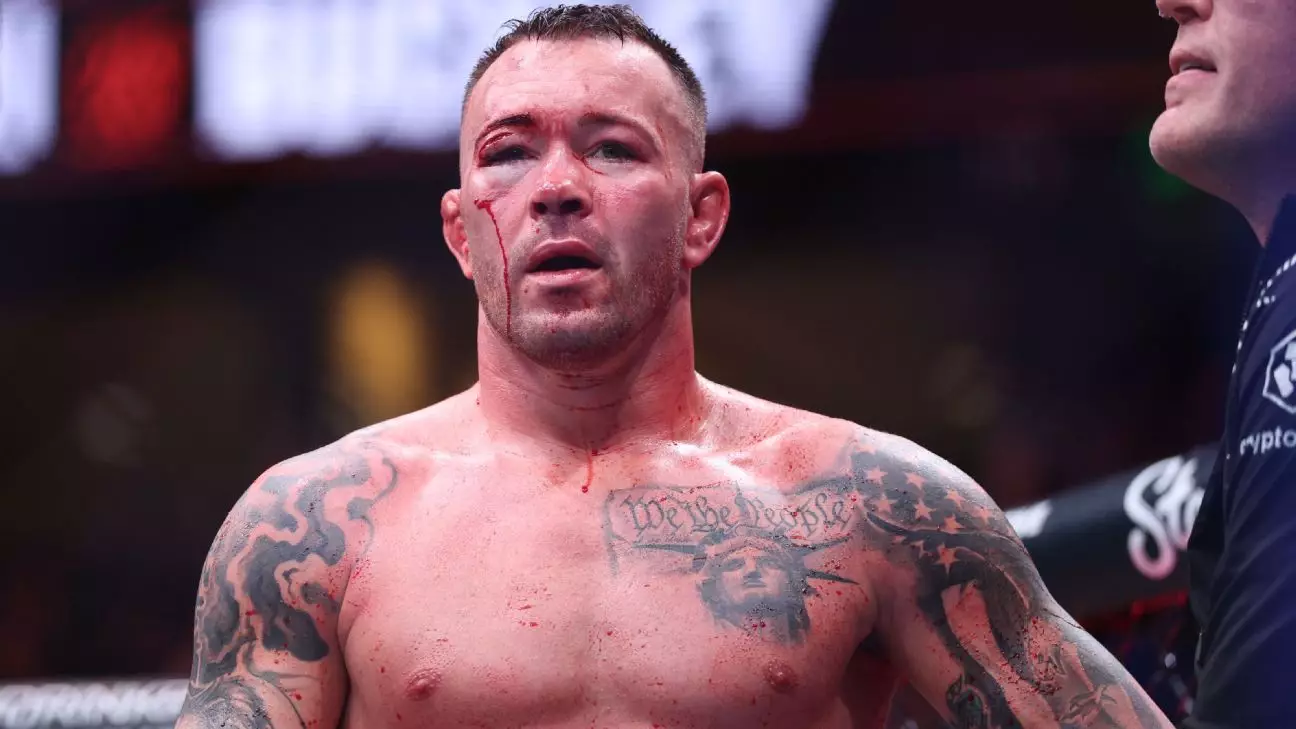Colby Covington’s recent UFC fight against Joaquin Buckley raised questions regarding the stoppage in the third round due to a significant cut above Covington’s eye. The bout, held in Tampa, Florida, ended prematurely, leaving fans and fighters alike debating whether the decision was justified or merely an overreaction. Covington, who believed he was just beginning to find his rhythm, expressed frustration over the fight’s abrupt end.
In a post-fight analysis on his YouTube channel, Covington argued that the contest was evenly matched at that point, claiming that he was beginning to dominate. “I was just getting warmed up,” he reiterated, suggesting that the fight was far from over. His words reflect the mental fortitude that many fighters exhibit, often believing in their ability to overcome adversity in the heat of battle. Covington’s confidence is not unfounded; he had endured some of Buckley’s heaviest shots without wavering, and he felt a comeback was imminent.
Chael Sonnen, a UFC veteran and Covington’s cornerman, offered an insider’s perspective that complicates Covington’s assertion. Sonnen revealed that he considered stopping the fight himself, underscoring the severity of the injury. “I was going to stop that fight. I already grabbed the towel,” he disclosed, highlighting the fine line between a fighter’s will to continue and the inherent dangers of unchecked injuries. Sonnen’s account serves as a sobering reminder that fights must be balanced against the risks of serious harm, particularly when visibility is compromised.
The Role of Medical Oversight in Fights
When a fight is interrupted for medical evaluation, it reflects a commitment to fighter safety. The physician assessing Covington’s condition faced a dilemma: allow the fight to proceed, or prioritize the fighter’s health? Sonnen pointed out that once blood begins to obstruct a fighter’s vision, the stakes elevate dramatically. The primary concern is always the fighter’s ability to safely compete, and this invariably leads to difficult decisions on the part of the ringside medical team.
Despite the disappointing conclusion, Covington remains optimistic about his future in the Octagon. He cited UFC President Dana White’s comments, implying that if the bout had taken place in Las Vegas, the outcome might have been different. This sentiment not only speaks to his competitive spirit but also to the nuances of fight officiating in different locations. Covington expressed determination to return, stating emphatically, “we’ll come back stronger,” a testament to the resilience that fighters must possess.
The controversy surrounding Covington’s bout with Buckley illustrates the complex interplay between a fighter’s ambition and the imperative for medical caution. As fans rally behind their favorite fighters, it is vital to recognize that safety remains paramount in a sport recognized for its brutality. Covington’s experience serves as a relevant case study, reminding all stakeholders in mixed martial arts that the sport must balance thrill with the utmost concern for the athletes’ well-being.

